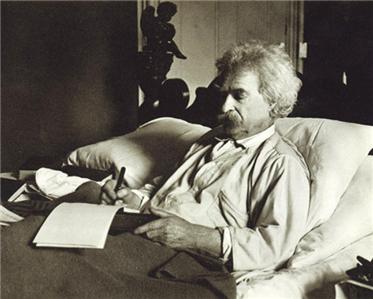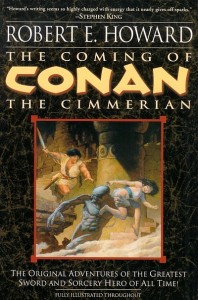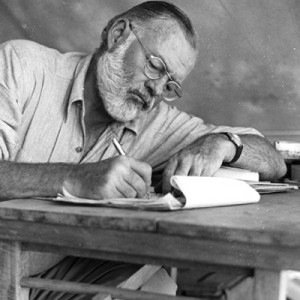I was born modest; not all over, but in spots.
— Mark Twain
 This is where I tell you why I’m the perfect guy to blog about despair and artistic angst and writers’ block like a cinder block smashing down on the keys of your laptop.
This is where I tell you why I’m the perfect guy to blog about despair and artistic angst and writers’ block like a cinder block smashing down on the keys of your laptop.
Bottom line is this: my credentials are more about the internal wounds I’ve overcome than the external honors I’ve been given. Which are sparse. It took me five years to finish my first novel, and I was too afraid to try to seek a publisher. The fact that very few people could read it didn’t quite bolster my confidence. It took me another seven to finish my next novel, and I was still unwilling to get help from anyone. And I still kept my writing life a secret from everyone. My wife would knock on the door, and I’d shuffle away my papers.
“What are you doing, Aaron?”
“Nothing. Not writing. Not me. Uh huh.”
Let’s fast forward? Or rewind. Or both. I always wanted to be a writer, ever since I was little. That was the dream. Aaron Ritchey, writer. On the first day of kindergarten, when the teacher told me to get out my crayons and paper, I asked, “Is this going to help me read and write?”
The answer was no. We were going to color. “Well,” I said, “I can color at home.” So I packed up my grip and walked home. I was five. It was clear what I wanted.
 And I wrote Indiana Jones/Conan fanfiction. Of course, I combined them. Jase Kilner and his race through the lost city of whatever. Still a cool name, Jase Kilner.
And I wrote Indiana Jones/Conan fanfiction. Of course, I combined them. Jase Kilner and his race through the lost city of whatever. Still a cool name, Jase Kilner.
I re-did Little Bo Peep, but added a hardboiled bounty hunter to help the luscious Bo Peep get back her sheep. There were wolves, but our hero had a shotgun. He was too cool to have a name. Too Clint Eastwood-y.
I loved to write stories, and my parents would eagerly wait to read what I had written. I had a fan base in the 3rd grade. My mom and dad. Garsh.
But then fear took hold. Bad fear. In high school, we had a literary magazine, and we’d vote on which stories we wanted to include. I always voted for myself, and I always lost to Pat Engelking, who was a better writer than me. But I hated that feeling, voting for myself. It felt horrible and I felt cursed to lose.
In the next twenty years, I wrote twelve novels. But was too afraid to shop them around.
Which brings up an important lesson. Always vote for yourself and vote with pride. Sending out query letters is voting for yourself. Now, if someone else has something better, vote for them, but if you’re all about the same, go for it, baby. We have to be our biggest fans because writers spend most of their time reading and re-reading their own work. It’s called revision. Be your own fan. Hell, be your own groupie. I won’t go any further on that.
So here I was, twenty years of writing, full of fear and regret. But I finally worked through the angst and terror and I sent out sixty queries to agents, editors, and presses, and I got picked up by a small press. That is my story. Along the way, I’ve spent 20 years working the 12 steps with my sponsor, and I’ve guided dozens of people through the 12 steps as a sponsor. I’ve been in recovery, without a relapse, for 21 years. As of today, everyone knows I’m a writer. And I keep on spreading the word.
I have overcome many of my deepest, darkest fears and self-limiting beliefs, and I can help others do the same. Hopefully, you can do it in a couple of months and it won’t take you decades. Hopefully.
A little bit more about me. Just your typical stuff because in the end, I’m just a typical guy. Oh, how I long to be so much more. But I’m not. Just a writer who plods along. Do-de-do-de-do.
In the middle of all that novel-writing, my wife and I spent 15 months traveling around the world. We settled down in Colorado where we raise two James-Bond-Super-Villains-In-Training who pose as little girls and who adore American girl dolls. Which of course is a plot to transfer wealth out of the middle class into Mattel’s evil laboratories.
When I’m not writing or speaking at writing conferences, I work at a computer company troubleshooting software, which is far more dull than it sounds.
I say all of that to say this. I failed at a deep level with my writing. Because of my own fear, because of my doubt, and because of my overly-dramatic self. I can “should” all over myself, all day long. I should have joined a critique group right away. I should have worked on short stories. I should have studied craft. I should have queried every day for years on end. Ray Bradbury had thousands of rejections before he published anything. Stephen King, same story.
But just because I failed yesterday, doesn’t mean I have to fail today. As long as I work through the angst to get to the other side. And there is another side for all of us. But it takes work and effort.
That’s what the rest of my blog posts are going to be all about. Working through the angst and trauma to get to the other side.
 Next week: Step one. Admitted we were powerless over our art and our creative lives had become unmanageable.
Next week: Step one. Admitted we were powerless over our art and our creative lives had become unmanageable.






